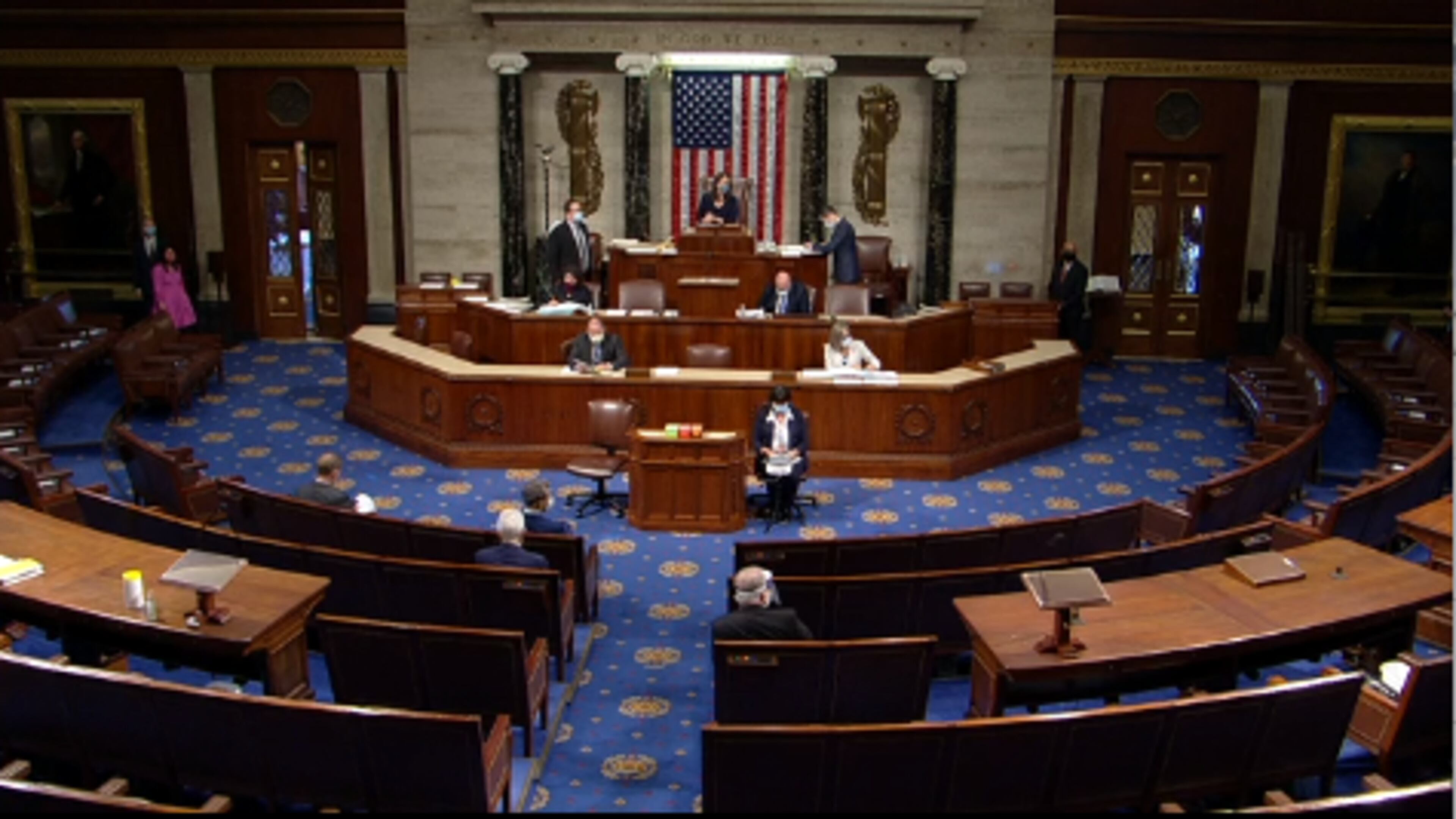House makes history with first floor proxy votes

With Republicans already in court challenging new House rules allowing remote voting by proxy, the House took a historic step Wednesday afternoon, with lawmakers casting floor votes for their colleagues who were not on Capitol Hill because of the Coronavirus outbreak.
Rep. Brendan Boyle (D-PA) was the first to exercise the new House rules approved earlier this month, stepping up during a vote to tell the chair he would cast a vote for Rep. Zoe Lofgren (D-CA).
The announcements were an unusual interruption during a House vote, as various members notified the chair of their remote votes.
"Madam Speaker, as the member designated by Ms. Bass of California, pursuant to House Resolution 965, I inform the House that Ms. Bass will vote yea," said Rep. David Cicilline (D-RI), as those were repeated by Democratic lawmakers who were designated to cast votes for those not in the House Chamber.
No Republicans took advantage of the change, which only will last for 45 days, unless extended for another 45 day period by Speaker Nancy Pelosi.
Rep. Brendan Boyle (D-PA) was first House member ever to announce a vote by proxy on the House floor. 13th term Rep. Zoe Lofgren (D-CA) designated the 3rd term Pennsylvania Congressman as her proxy to vote Yes on UIGHUR Act. https://t.co/4gMmeoD9WB pic.twitter.com/nDCP0YaXiY
— Craig Caplan (@CraigCaplan) May 27, 2020
As of Wednesday afternoon, 75 Democrats in the House had authorized other members to cast their votes under these floor proxy rules - with all of the letters publicly available on the website of the House Clerk.
Republicans expressed their indignation at the change, which they said would have the Founding Fathers rolling in their graves.
"This challenges the Constitution," said House GOP Leader Kevin McCarthy (R-CA), who has led a legal challenge against the new House rules.
"It violates the Constitution as a dereliction of duty by its members," McCarthy told reporters outside the Capitol on Wednesday.
The 38-page lawsuit filed by the GOP seeks to have a court "permanently enjoin the use of proxy voting in the United States House of Representatives."
.@GOPLeader on proxy voting: "This is unconstitutional what the Democrats are doing...Whatever the Democrats propose to bring up cannot become law because it's unconstitutional."
— CSPAN (@cspan) May 27, 2020
Full video here: https://t.co/UThK9wNv9w pic.twitter.com/b5Y4rN8Vts
But as with most procedural matters in the House during the 116th Congress, the GOP is outnumbered, unable to block the rules change by Democrats.
Democrats said the Constitution clearly states that the House and Senate can set their own rules, as they argued this change had the backing of numerous legal experts.
Republicans said every bill which passes the House using these remote rules should be declared unconstitutional.
Proxy voting was used in committees in the House as recently as 1994, but never on the floor.
